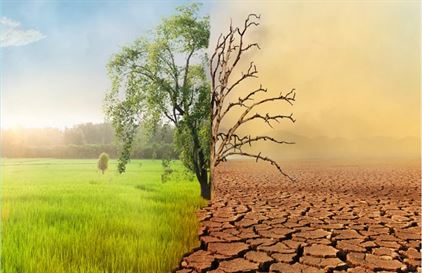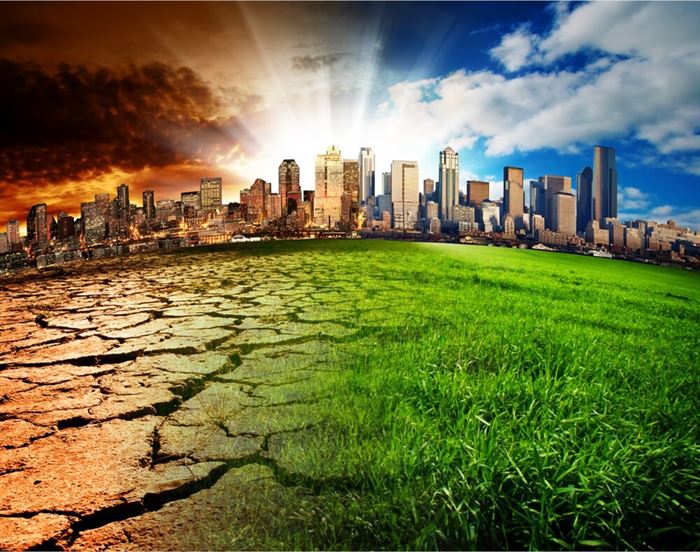The Impact of Climate Change on Nigerian Agriculture and How to Adapt

Climate change has become one of the most pressing global challenges, with its effects being felt across various sectors, including agriculture. In Nigeria, where agriculture contributes significantly to the economy and provides a livelihood for millions, the impact of climate change poses a serious threat to food security, economic stability, and rural development. Rising temperatures, erratic rainfall patterns, increased flooding, and droughts are altering the agricultural landscape, making it imperative to understand these changes and adapt accordingly.
This comprehensive guide will explore the impact of climate change on Nigerian agriculture, present adaptation strategies, provide a step-by-step guide for farmers and policymakers, review current efforts, and discuss ways to increase visibility and income in climate-smart farming. Finally, we encourage you to join the conversation by sharing your thoughts and experiences in the comments section.
Chapter 1: Understanding Climate Change and Its Impact on Nigerian Agriculture
1.1 What is Climate Change?
Climate change refers to significant, long-term changes in temperature, precipitation, and other atmospheric conditions on Earth. It is primarily driven by human activities, such as deforestation, burning fossil fuels, and industrialization, leading to increased greenhouse gas emissions.
1.2 How Climate Change Affects Nigerian Agriculture
The Nigerian agricultural sector, which employs over 60% of the workforce, is highly vulnerable to climate variability and change. Below are some key impacts:
- Unpredictable Rainfall Patterns: Delayed or early rains affect planting and harvesting schedules, reducing crop yields.
- Rising Temperatures: Higher temperatures lead to increased evaporation, soil degradation, and heat stress on crops and livestock.
- Flooding: Excessive rainfall causes floods that wash away crops, displace farmers, and destroy farmlands.
- Droughts: Prolonged dry periods affect water availability for irrigation, leading to crop failures.
- Pests and Diseases: Warmer climates encourage the spread of pests and diseases that damage crops and livestock.
Chapter 2: Step-by-Step Guide to Adapting to Climate Change in Nigerian Agriculture
2.1 Assessing Climate Risks
Farmers need to understand the specific climate risks affecting their regions. This includes analyzing rainfall patterns, temperature variations, and previous extreme weather events.
READ MORE: Cabbage Farming in Nigeria: Profitable Guide to Cultivation & Market Trends
2.2 Choosing Climate-Resilient Crops
Selecting drought-resistant and flood-tolerant crop varieties can help mitigate losses. Examples include:
- Drought-resistant maize varieties
- Early-maturing rice varieties
- Cassava, which thrives in various conditions
2.3 Adopting Sustainable Farming Practices
- Crop Rotation: Reduces soil depletion and pest infestations.
- Agroforestry: Incorporating trees into farms provides shade and reduces soil erosion.
- Conservation Tillage: Minimizes soil disturbance and retains moisture.
2.4 Efficient Water Management
- Drip Irrigation: Ensures efficient water use, reducing wastage.
- Rainwater Harvesting: Collects and stores rainwater for use during dry seasons.
- Building Small Dams: Helps in water conservation.
2.5 Soil Fertility Improvement
- Use of Organic Fertilizers: Compost and manure improve soil health.
- Mulching: Conserves soil moisture and regulates temperature.
2.6 Diversification of Livelihoods
- Engaging in Fish Farming: As an alternative source of income.
- Integrating Poultry and Livestock Farming: Reduces dependence on crop farming alone.
2.7 Accessing Climate Information Services
- Weather Forecasts: Helps farmers plan planting and harvesting periods.
- Early Warning Systems: Alerts on potential extreme weather events.
2.8 Leveraging Technology in Farming
- Mobile Apps for Climate Information: Helps in decision-making.
- Precision Agriculture: Uses drones and sensors to monitor crop health.
Chapter 3: Review of Current Climate Adaptation Efforts in Nigeria

The Impact of Climate Change on Nigerian Agriculture and How to Adapt
3.1 Government Initiatives
- The Nigerian government has implemented policies like the Climate Change Policy Response and Strategy.
- Programs like the Agricultural Transformation Agenda (ATA) focus on improving resilience.
3.2 NGO and International Support
- Organizations like FAO, IFAD, and the World Bank support climate adaptation projects.
- Research institutions develop climate-resilient seed varieties.
3.3 Local Community-Based Adaptation Efforts
- Farmer cooperatives share best practices.
- Indigenous knowledge is incorporated into adaptation strategies.
Chapter 4: Increasing Visibility and Income in Climate-Smart Agriculture
4.1 Digital Marketing for Farmers
- Use social media platforms to sell farm produce.
- Create a website or blog to showcase products and climate-smart techniques.
4.2 Value Addition to Agricultural Products
- Processing raw farm products into finished goods increases revenue (e.g., cassava into flour).
- Packaging and branding enhance market appeal.
4.3 Access to Finance and Grants
- Explore government grants and international funding.
- Microfinance and cooperative loans provide capital for climate-smart investments.
4.4 Engaging in Climate Advocacy and Partnerships
- Join networks promoting climate-smart agriculture.
- Participate in policy discussions on climate adaptation.
Join the Conversation!
The impact of climate change on Nigerian agriculture is undeniable, but adaptation strategies can help mitigate the effects and ensure sustainable food production. By adopting climate-smart techniques, leveraging technology, and accessing financial support, farmers can secure their livelihoods and contribute to national food security.
What are your thoughts on climate change adaptation in Nigerian agriculture? Have you implemented any of these strategies? We’d love to hear from you! Leave a comment below and share your experiences or questions.

Leave your comment